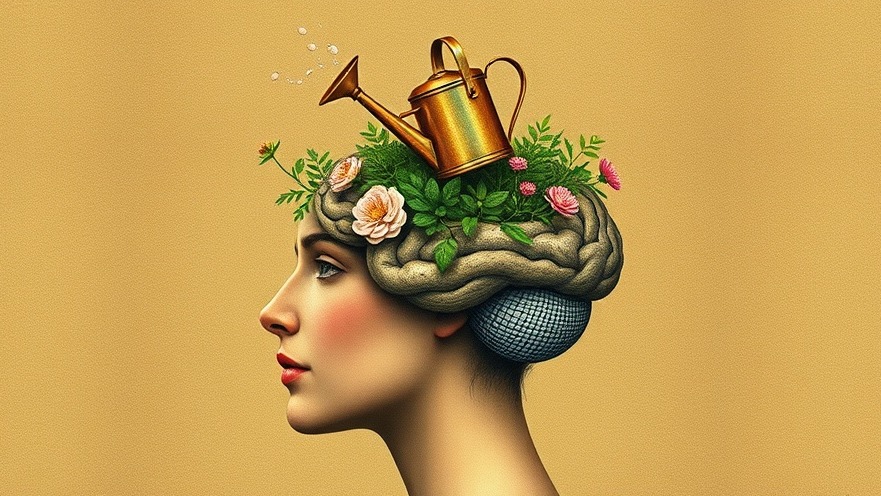
The Brain’s Role in Aging: More Than Just Thoughts
We often hear the phrase, "you are only as old as you feel," suggesting a correlation between our mental state and our physical health. However, recent discoveries have shed light on a compelling twist: the brain itself may serve as a true indicator of biological age, impacting not only our well-being but also our lifespan. Research led by Stanford University's Tony Wyss-Coray dives into the connection between proteins in the bloodstream and organ health, presenting fascinating insights that suggest our mental wellness plays a pivotal role in how well we navigate the aging process.
What is Biological Age and Why Does It Matter?
While chronological age marks the passage of time, biological age tells a different story, revealing the condition of our internal organs. Understanding the distinction can empower us to make informed choices about our health. Wyss-Coray's groundbreaking study examined the blood of nearly 45,000 individuals, with a focus on understanding how the biological age of different organs affects overall health and longevity. What’s striking is the ranking of importance: the brain emerges as the gatekeeper of longevity, markedly influencing health outcomes.
Health Insights from Protein Profiles
The study's machine learning model analyzed over 3,000 proteins in the blood, correlating protein makeup with biological age predictions. Overall, individuals with an aging brain had a stark increase in mortality risk, while those appearing biologically younger in their brain’s health reduced their risk significantly. This critical insight could change how we approach health assessments—focusing not just on symptoms, but on underlying biological markers that indicate a person’s risk of developing diseases, including Alzheimer’s and heart conditions.
Empowering Choices and Healthy Aging
So, how can we harness this information to promote our longevity? Staying proactive in brain health may be the key. Practical steps to nourish our mental well-being and biological age include:
Healthy Diet: Foods rich in omega-3 fatty acids, antioxidants, and vitamins can promote brain health. Think of leafy greens, nuts, and fatty fish as friends of your mind.
Regular Exercise: Engaging in physical activity can increase blood flow to the brain while reducing stress, fostering a youthful and resilient mind.
Mental Engagement: Activities that stimulate the brain, such as learning new skills or engaging in puzzles, may help maintain its agility and health.
Fostering Mind-Body Connection
The link between mental health and biological aging underscores the importance of fostering a positive mindset. Techniques such as mindfulness meditation can significantly impact both brain function and emotional well-being. As we manage stress and cultivate gratitude, we not only enhance our current mood but potentially extend our lifespan.
Looking Ahead: The Future of Health Testing
The potential for blood screenings to reveal biological organ ages is groundbreaking. This tool promises to revolutionize our approach to health, shifting from reactive treatment based on symptoms to proactive prevention based on biological insights. Imagine visiting a healthcare provider who assesses your risk based on the actual age of your organs rather than just the number of candles on your birthday cake!
Take Charge of Your Longevity
Understanding the significant role our brain plays in determining our health trajectory can be empowering. As we embrace the insights that come from studies like Wyss-Coray's, we should actively seek ways to enhance our brain health through education, lifestyle adjustments, and practices that promote overall wellness. By investing time and energy into nurturing our bodies and minds, we can foster our longevity and lead healthier, more fulfilling lives.
 Add Row
Add Row  Add
Add 




Write A Comment